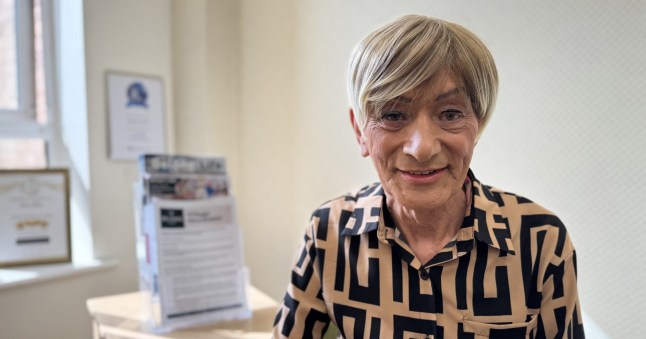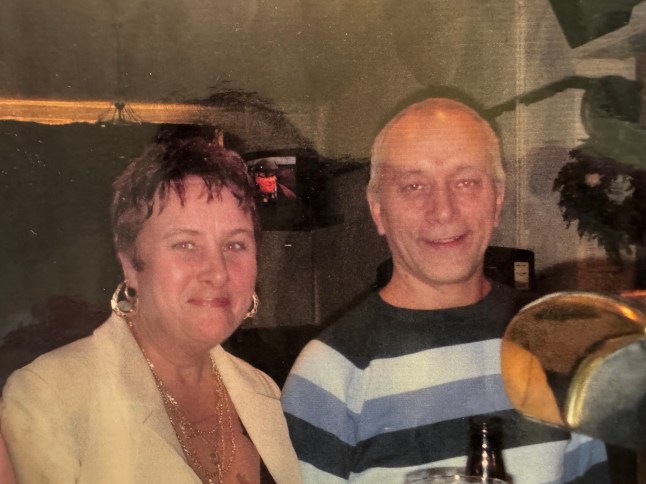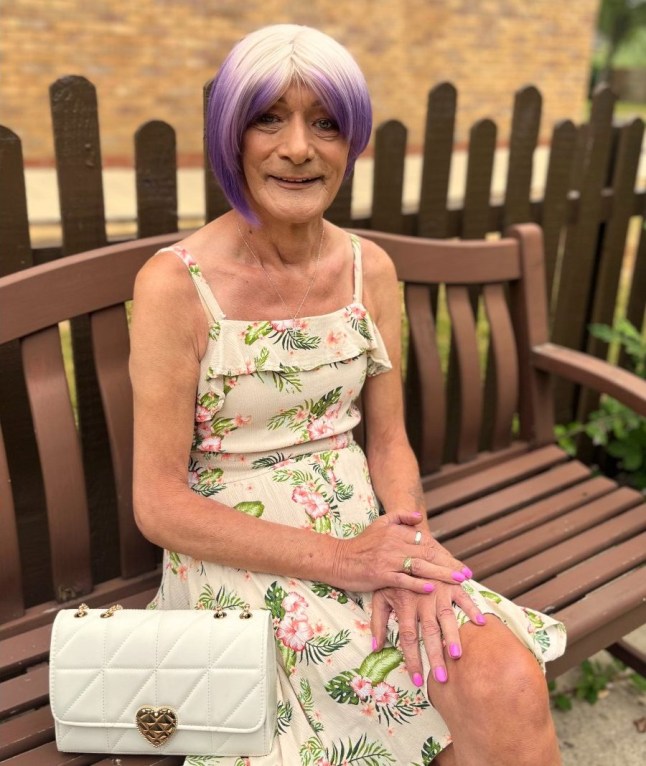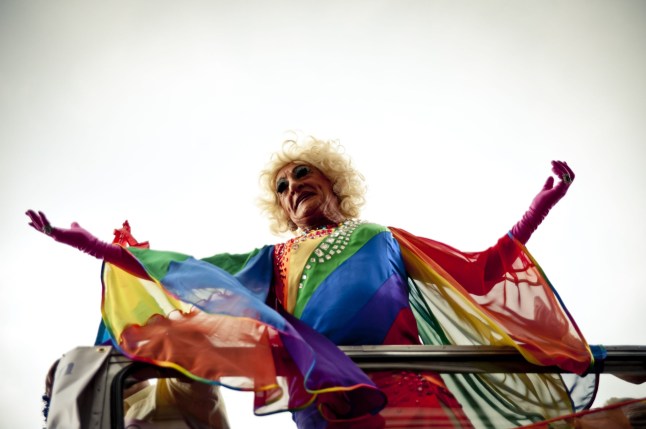
A builder threatened with electroshock therapy for wearing a dress as a child has come out as trans in her 60s.
Samantha Wolsey, 69, threw on a dress for the first time when she was six and felt something she had never had before – gender euphoria.
‘I felt absolutely superb when I first put a dress on,’ she recalled.
But her father did not feel the same way. Instead, he took his child to a psychiatrist, who suggested electric shock treatment.
‘I managed to get out the room, and I turned around to my dad and said, “If you want that shock treatment, lie on it yourself”,’ the one of 11 children said.
‘I said: “It’s you who bloody needs it and not me”.’

Samantha continued to wear women’s clothing for years, only to stop after she was beaten so badly in Leigh in the 1990s that she ‘lost all her teeth’.
She was attacked from behind when walking by a taxi rank in Leigh, having been dressed as a woman under the guise of raising money for Children In Need.
Join Metro’s LGBTQ+ community on WhatsApp
With thousands of members from all over the world, our vibrant LGBTQ+ WhatsApp channel is a hub for all the latest news and important issues that face the LGBTQ+ community.
Simply click on this link, select ‘Join Chat’ and you’re in! Don’t forget to turn on notifications!
After this, Samantha hid who she was, even though her wife of decades, Denise, 66, fully supported her.
Yet Denise developed a tumour in her chest in 2014, only to suffer from paraneoplastic syndrome – when anti-tumour antibodies start to attack healthy cells – afterwards.
Samantha moved into one of Belong Wigan’s independent living flats to be close to her wife.
Staff helped Samantha accept who she is – a trans woman.

‘Everybody, as far as I know, has accepted me,’ she said.
Samantha grew up with six brothers and four sisters, often playing dress-up.
‘But my dad hated it, because he’s always wanted men in his life,’ Samantha said. ‘That’s realistically what buggered me up.’
What is electroshock therapy?
Conversion therapy, also called reparative therapy, is a discredited practice that aims to change a person’s sexual orientation or gender expression.
Electroshock was a common form of conversion therapy throughout the 1960s in the UK.
People had painful electric jolts administered when they were aroused by same-sex images, in what is called aversion therapy.
‘Each treatment lasted about 30 minutes, with some participants given portable electric shock boxes to use at home while they induced sexual fantasies,’ researchers describe.
Many other forms of conversion therapy continue in the UK.
Nearly a third of LGBTQ+ Britons have experienced at least one attempt at changing their sexuality or gender. One in 10 queer people have undergone an ‘exorcism’, while roughly the same number have suffered ‘corrective rape’ – sexually assaulting an LGBTQ+ person to ‘cure’ them.
Samantha met Denise in 1978 at a pub while she worked as a builder.
Denise didn’t quite believe Samantha at first when she told her she cross-dresses. The wig, however, was even more unbelievable.
‘You look OK from your neck down, but that bloody wig, what you’ve got on, it’s absolutely disgusting,’ Denise told Samantha when she wore women’s clothing in front of her for the first time, Samantha said.
Denise would eventually begin bringing her partner carrier bags of feminine clothing – from bras to knickers – to show she supported Samantha.
In 2010, Samantha and Denise went on holiday to Spain. At the hotel, Samantha popped open her suitcase only to not see any of her clothing.
‘I started unpacking it, and I said, “Have you given me the wrong case here?”‘ Samantha said.

‘Denise said, “No, why?” I said, “It’s all women’s clothes”. She said: “Yeah, that’s the whole idea”.
‘There were even bikinis in there!’
Denise, however, was given just six months to live in 2014 after she developed a tumour and paraneoplastic syndrome.
She defied the odds and, 10 months later, moved into a care home in Wigan. Samantha joined her in 2020.
‘If you want to do it, go for it’
One evening in 2023, she dressed as a woman and claimed it was for a ‘fancy-dress party’.
Staff saw right through her and instead encouraged her to embrace her identity – a Q&A session was even arranged so residents could ask about her transition.
Samantha is also asking herself a lot of questions, too.
While she’s legally changed her name and is the proud owner of some 40 dresses and 30 wigs, she wonders how different her life would have been if she had come out earlier.
If she could, Samantha says, she would have undergone gender-affirming surgery.
‘If you want to do it, go for it,’ Samantha added. ‘I’ll be there if you want to talk to somebody.’
Get in touch with our news team by emailing us at webnews@metro.co.uk.
For more stories like this, check our news page.


